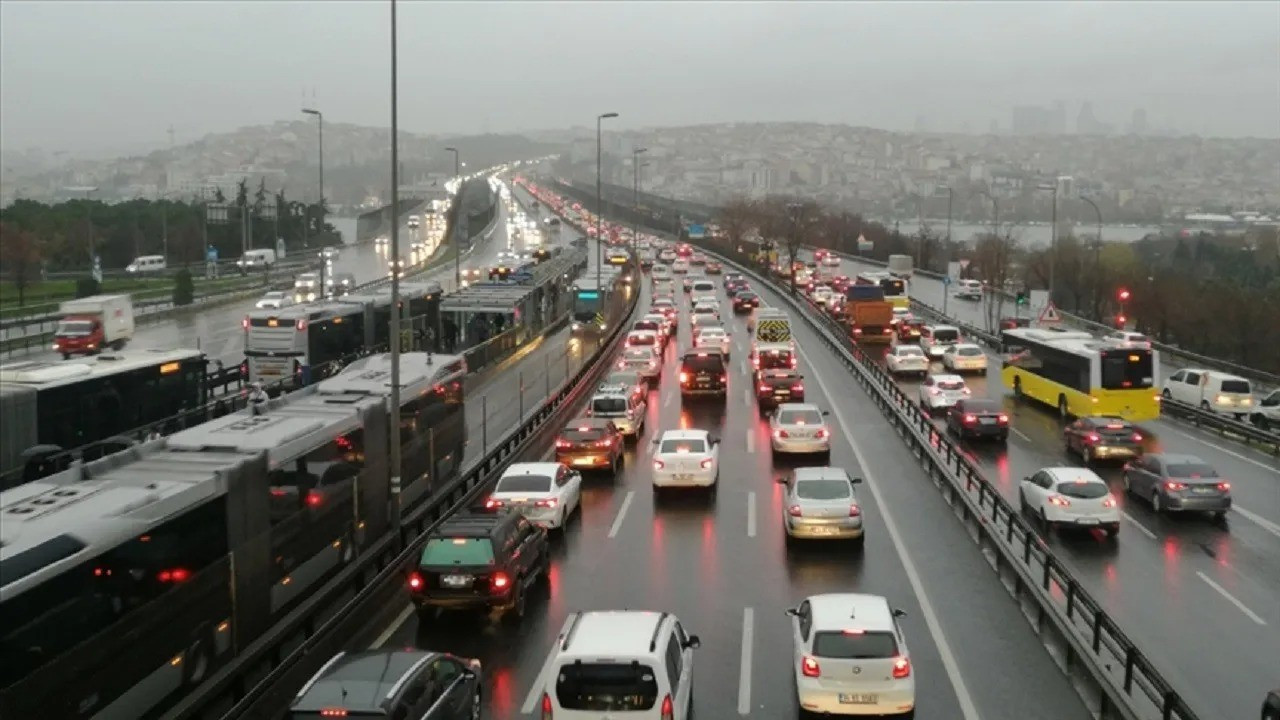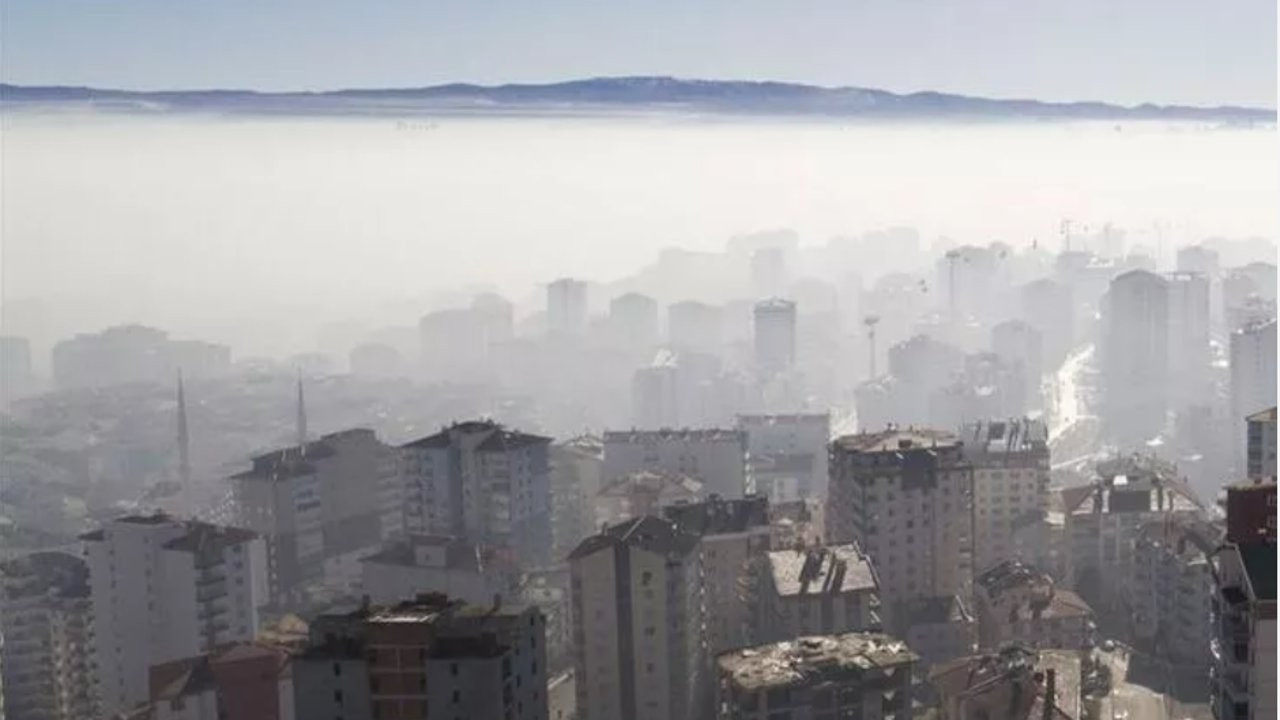More than 92 pct of Turkish population breathes polluted air: Report
The Right to Clean Air Platform (THHP) reported that over 92 percent of Turkey's population breathed polluted air daily, with the eastern province of Hakkari having the most pollutants per cubic meter. Lower pollution could have prevented almost 70,000 deaths per year.
Göksel Durutuna / Gazete Duvar
The Right to Clean Air Platform (THHP) on Sept. 26 published "Dark Report 2024," which examines air quality in Turkey and its effects on human health.
THHP annually reviews air quality data, regulations, policies, and practices across Turkey. Its sixth "Dark Report" highlighted the ongoing issues related to air pollution and proposed concrete solutions.
The report revealed that more than 92 percent of the population in Turkey still breathed polluted air, according to World Health Organization (WHO) standards. Additionally, although the number of stations in the air quality monitoring network increased across Turkey in 2022 and 2023, the efficiency of air pollution monitoring remained very low. In other words, the country had the infrastructure, but could not operate it effectively. Especially in regions with heavy industries that use fossil fuels, air quality was not regularly monitored.
Alarming air quality in İzmir
According to the report, particulate matter PM10 and carcinogenic PM2.5, which contribute to air pollution, were not measured regularly or sufficiently in the three major provinces of Istanbul, Ankara, and Izmir.
Based on limited official data, Istanbul residents were exposed to an average of 38.41 μg/m3 of PM10 throughout 2022, which is two and a half times the WHO guideline value. Carcinogenic particulate matter PM2.5 was not adequately measured.
In Ankara, the annual PM10 average in 2022 was 39.25 μg/m3, while in Izmir, it was 45.18 μg/m3. Izmir residents breathed air that exceeded the national legal limit throughout the year, while Ankara and Istanbul hovered around this limit.
Air pollution causes breast cancer
One of the most striking findings in the report was the link between air pollution and breast cancer. Public health expert Prof. Dr. Gamze Varol, one of the report's authors, highlighted the growing number of scientific studies worldwide that show a connection between breast cancer and air pollution,
"Every 10 μg/m3 increase in nitrogen dioxide (NO2), an important component of air pollution, raises the risk of breast cancer by 1.02 times. Additionally, a 10 μg/m3 increase in PM10 raises the risk of dying from breast cancer by 1.05 times. A U.S. study found an eight percent increase in breast cancer cases in areas with higher exposure to PM2.5."
The report also noted that exposure to exhaust fumes increases the risk of breast cancer. In France, 3.15 percent of annual breast cancer cases were attributed to NO2, mainly from traffic. The cost of this increase is estimated at 825 million euros annually.
Deaths from air pollution approach 70,000
According to the health impact assessment conducted annually as part of the report, the number of deaths from air pollution in Turkey in 2022 was higher both numerically and proportionally compared to previous years.
Prof. Dr. Çiğdem Çağlayan, a public health expert who led the health impact assessment study, explained that if the average particulate matter (PM2.5) levels in the provinces had been reduced to the WHO guideline value of 5 μg/m3, 68,440 deaths could have been prevented in 2022.
Accordingly, excluding deaths from accidents, injuries, and COVID-19, 14.2 percent of all deaths among those over the age of 30 were attributed to air pollution."
The provinces with the highest percentage of deaths due to air pollution were those with the highest PM2.5 levels. Hakkari in eastern Turkey took the top spot from the eastern Batman this year and recorded 230 deaths.
The report projected that if the PM2.5 level had been reduced to below 5 μg/m3, 41 percent of these deaths could have been prevented. Other provinces with high death rates included Batman, Şırnak, Muş, Malatya, Iğdır, Şanlıurfa, Ağrı, Osmaniye, and Gaziantep, located in the eastern and southeastern regions.
Meanwhile, Istanbul had the highest number of deaths attributed to air pollution, with 8,357; followed by the western İzmir with 4,852 and Bursa with 3,657. In the capital of Ankara, the number of deaths from air pollution was 3,155. The higher number of deaths in these cities is linked to their large populations rather than pollution levels.
THHP proposed measures to reduce air pollution and its associated health impacts in Turkey. Accordingly, Turkey should rapidly reduce its dependency on fossil fuels for energy, improve its national air quality standards, establish and enforce a national limit value for PM2.5, enhance air quality monitoring, especially in heavy industrial zones, and provide consistently transparent environmental information.
(English version by Ayşenaz Toptaş)


 Air pollution in Istanbul increases by 14 pct in one yearEnvironment
Air pollution in Istanbul increases by 14 pct in one yearEnvironment Turkey’s Iğdır once again becomes most polluted city in Europe: ReportEnvironment
Turkey’s Iğdır once again becomes most polluted city in Europe: ReportEnvironment Poor air quality in Turkey’s quake region threatens public healthEnvironment
Poor air quality in Turkey’s quake region threatens public healthEnvironment